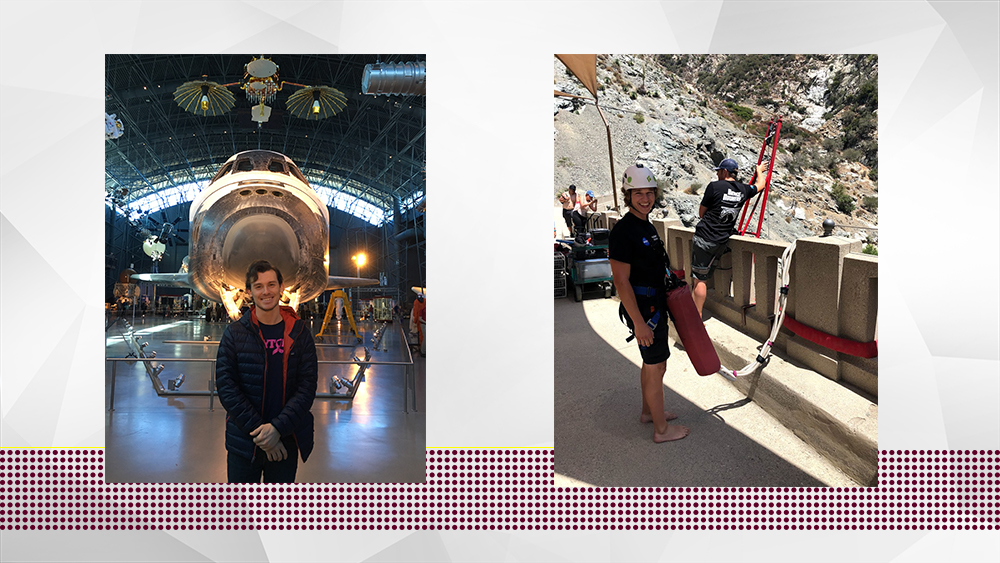
NASA has selected two aerospace engineering graduate students as 2019 NASA Space Technology Research Fellows. Hunter Johnston and Carl Leake are both doctoral students under the advisement of Dr. Daniele Mortari, professor in the Department of Aerospace Engineering at Texas A&M University.
Being selected as a NASA Space Technology Research Fellow (NSTRF) is a real mark of distinction. The goal of the program is to sponsor graduate students who show significant potential to contribute to NASA’s goal of creating innovative new space technologies for our nation’s science, exploration and economic future.
Johnston submitted the proposal “Real-time Optimal Guidance Via Theory of Connections.” “With the next generation of space missions beyond Earth orbit, a new generation of algorithms must be developed to decrease the reliance on Earth-based navigation techniques,” says Johnston. “In fact, the ability to execute orbital maneuvers, rendezvous and landing procedures on board and in real time is of great importance for future missions. The focus of my research is to apply a technique called the Theory of Connections (which has been applied to solve differential equations) in order to develop a solution for real-time optimal landing.”
For Leake’s proposal “Improving the Fidelity of General Flexible Multibody Dynamic Simulations,” his research will focus on improving the ability to simulate flexible multibody structures. This simulation capability is a critical component in the design of a large variety of systems, including extraterrestrial rotorcraft systems. “This fellowship will enable me to pursue full-time research that interests me and supports NASA’s mission,” says Leake.
The NSTRF award is worth a total of $80,000 for the initial year and may be renewed for up to three more years with satisfactory progress shown on the research.
In addition to their faculty advisor, both students will be matched with a technically relevant and community-engaged NASA subject matter expert, who will serve as the student’s research collaborator. The research collaborator will serve as the conduit into the larger technical community corresponding to the student’s space technology research area.